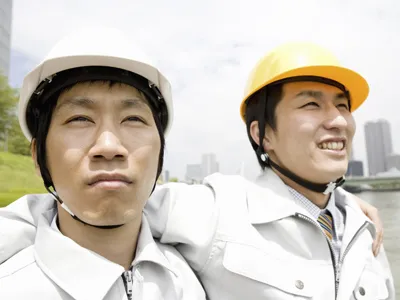
Singapore needs 15,000 rail engineers by 2030: Transport minister
As it expands its MRT network and improves rail reliability.
The Ministry of Transport is in need of additional 15,000 rail engineers and technicians by 2030, as it grows Singapore's rail network.
According to Transport Minister Khaw Boon Wan, LTA and the two rail operators have increased their hiring for engineering, operations and maintenance by 50%, bringing the total industry headcount to about 9,300.
"By 2030, we expect this number to further increase to 15,000. This makes the rail industry a growth industry, whose employment prospects are almost guaranteed in the next decade. Salaries are also attractive. While the median pay for fresh graduates in 2015 was about $3,300, engineers joining the public service for instance, can expect about $3,800 a month. I believe that our rail operators are also paying higher than the median pay for engineering graduates," he said.
This will come as Singapore is now at the second phase of its rail journey, with its rail network expected to be 360 kilometres long by 2030.
"[This brings] us to a rail density similar to London and New York today. However, London and New York built their current rail networks over the span of a century, while we are building ours in less than half the time. At the same time, we are working hard to improve the reliability of our rail system, to be among the best in the world" the minister noted.
Mr Khaw recognised that a rail engineer's job is fast changing and is very different from that in the 1980s.
He explained, "It has become more complex and requires significant inter-agency coordination because we need to build our rail systems deeper underground. New challenges will also emerge now and then. For example, in building Downtown Line 3, we did not just have to deal with a high groundwater table as in the past, but we had to divert a part of the Singapore River! It was an amazing engineering feat."
He mentioned three strategies to develop the new generation of rail engineers.
First, there he cited that there is a need for a platform for engineers and technicians to join the rail industry, regardless whether they are fresh graduates from our universities, polytechnics and ITEs, or from other fields, or if they are non-practising rail engineers who wish to come back into the field.
The government would also need to provide continuous training and accreditation for existing rail engineers and technicians. The accreditation will facilitate their mobility across the industry and enhance their market value.
"Lastly, e need to spur research and innovation by public and private entities in the industry. This will be crucial, for instance, for us to reach and surpass 400,000 train-km in MKBF in the most resource-efficient way possible. Our expanding rail network presents us with an invaluable opportunity to study, develop, and implement state-of-the-art systems for maintenance and operations," the minister said.


![SBR 5 Lorem Ipsum News 2 [8 May]](https://cmg-qa.s3.ap-southeast-1.amazonaws.com/s3fs-public/styles/exclusive_featured_article/public/2025-05/a_hand_pointing_to_a_futuristic_technology_5b87c9d0e3_3.png.webp?itok=M3Hf-9XR)
![SBR 4 Lorem Ipsum [8 May Top Stories]](https://cmg-qa.s3.ap-southeast-1.amazonaws.com/s3fs-public/styles/exclusive_featured_article/public/2025-05/a_hand_pointing_to_a_futuristic_technology_5b87c9d0e3_2.png.webp?itok=2m5Wl0MX)


![Exclusive three SBR 12 Lorem Ipsum [8 May]](https://cmg-qa.s3.ap-southeast-1.amazonaws.com/s3fs-public/styles/exclusive_featured_article/public/2025-05/a_hand_pointing_to_a_futuristic_technology_5b87c9d0e3_11.png.webp?itok=8kn_UIfA)
![SBR 3 Lorem Ipsum [ Exclusive 2]](https://cmg-qa.s3.ap-southeast-1.amazonaws.com/s3fs-public/styles/exclusive_featured_article/public/2025-05/a_hand_pointing_to_a_futuristic_technology_5b87c9d0e3_1.png.webp?itok=YCyjLegJ)
![SBR 2 Lorem Ipsum [8 May]](https://cmg-qa.s3.ap-southeast-1.amazonaws.com/s3fs-public/styles/exclusive_featured_article/public/2025-05/a_hand_pointing_to_a_futuristic_technology_5b87c9d0e3_0.png.webp?itok=_cKD-29o)

![Video [Event News]](https://cmg-qa.s3.ap-southeast-1.amazonaws.com/s3fs-public/styles/event_news_featured_article/public/2025-05/screenshot-2025-05-08-at-4.58.53-pm_0.png.webp?itok=Kud35sMs)
![Event News SBR 9 Lorem Ipsum [8 may]](https://cmg-qa.s3.ap-southeast-1.amazonaws.com/s3fs-public/styles/event_news_thumbnail/public/2025-05/a_hand_pointing_to_a_futuristic_technology_5b87c9d0e3_8.png.webp?itok=DTh_dbYp)
![Event News SBR 9 Lorem Ipsum [8 May]](https://cmg-qa.s3.ap-southeast-1.amazonaws.com/s3fs-public/styles/event_news_thumbnail/public/2025-05/a_hand_pointing_to_a_futuristic_technology_5b87c9d0e3_7.png.webp?itok=vzDAzb6V)
![Event News SBR 8 Lorem Ipsum [8 May]](https://cmg-qa.s3.ap-southeast-1.amazonaws.com/s3fs-public/styles/event_news_thumbnail/public/2025-05/a_hand_pointing_to_a_futuristic_technology_5b87c9d0e3_6.png.webp?itok=jvHFc4P6)
![Video [Event News]](https://cmg-qa.s3.ap-southeast-1.amazonaws.com/s3fs-public/styles/video_thumbnail/public/2025-05/screenshot-2025-05-08-at-4.58.53-pm_0.png.webp?itok=yZnI0YBb)
![Video 1 SBR [8 May]](https://cmg-qa.s3.ap-southeast-1.amazonaws.com/s3fs-public/styles/video_thumbnail/public/2025-05/screenshot-2025-05-08-at-4.58.53-pm.png.webp?itok=9AAeRz_k)

 Advertise
Advertise

